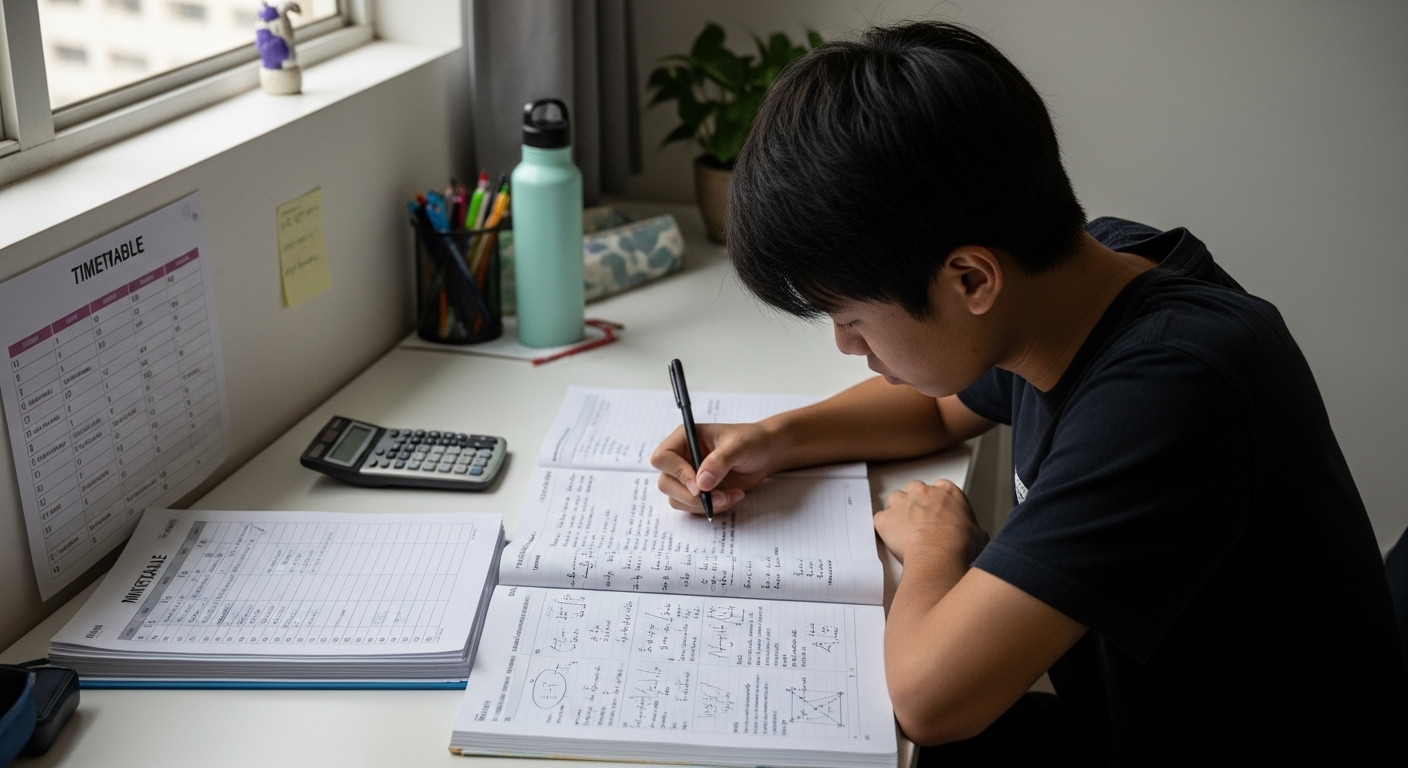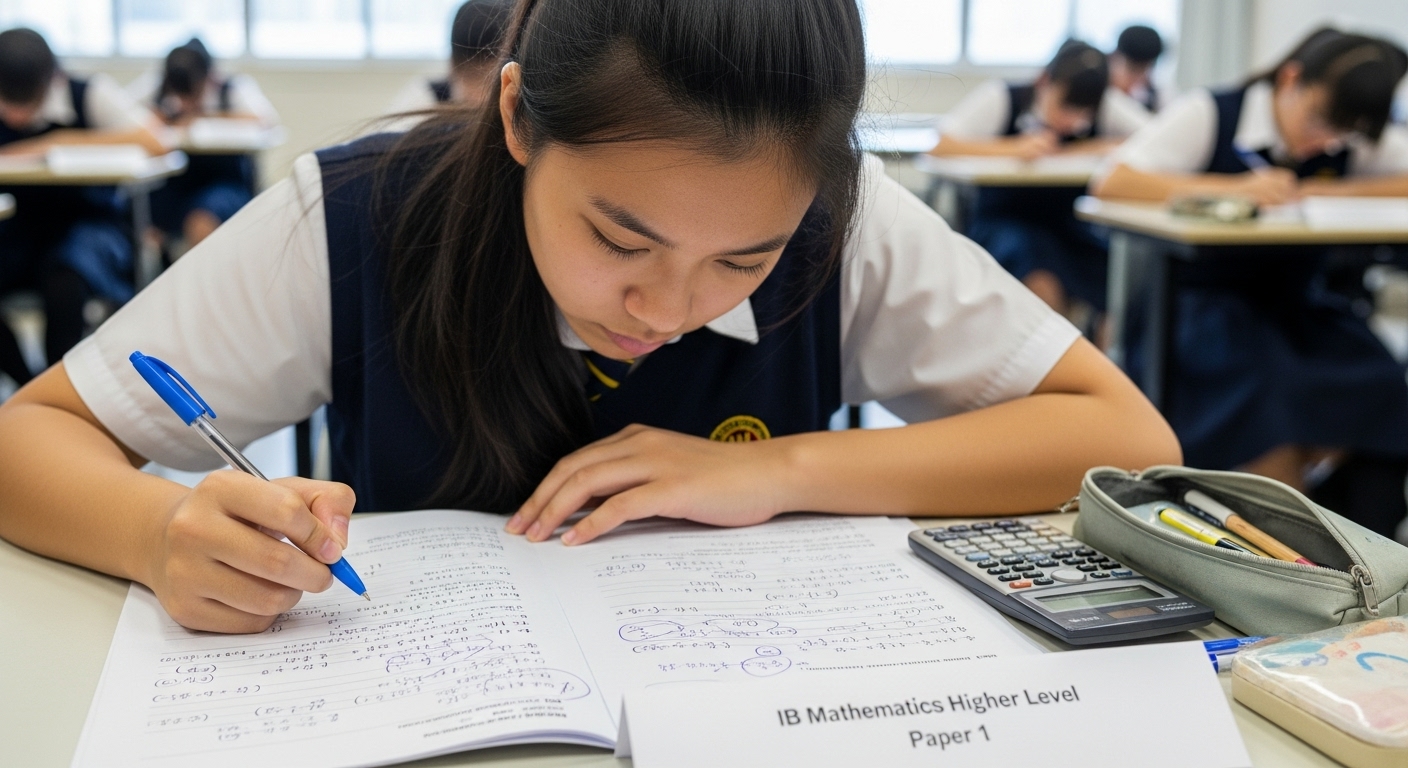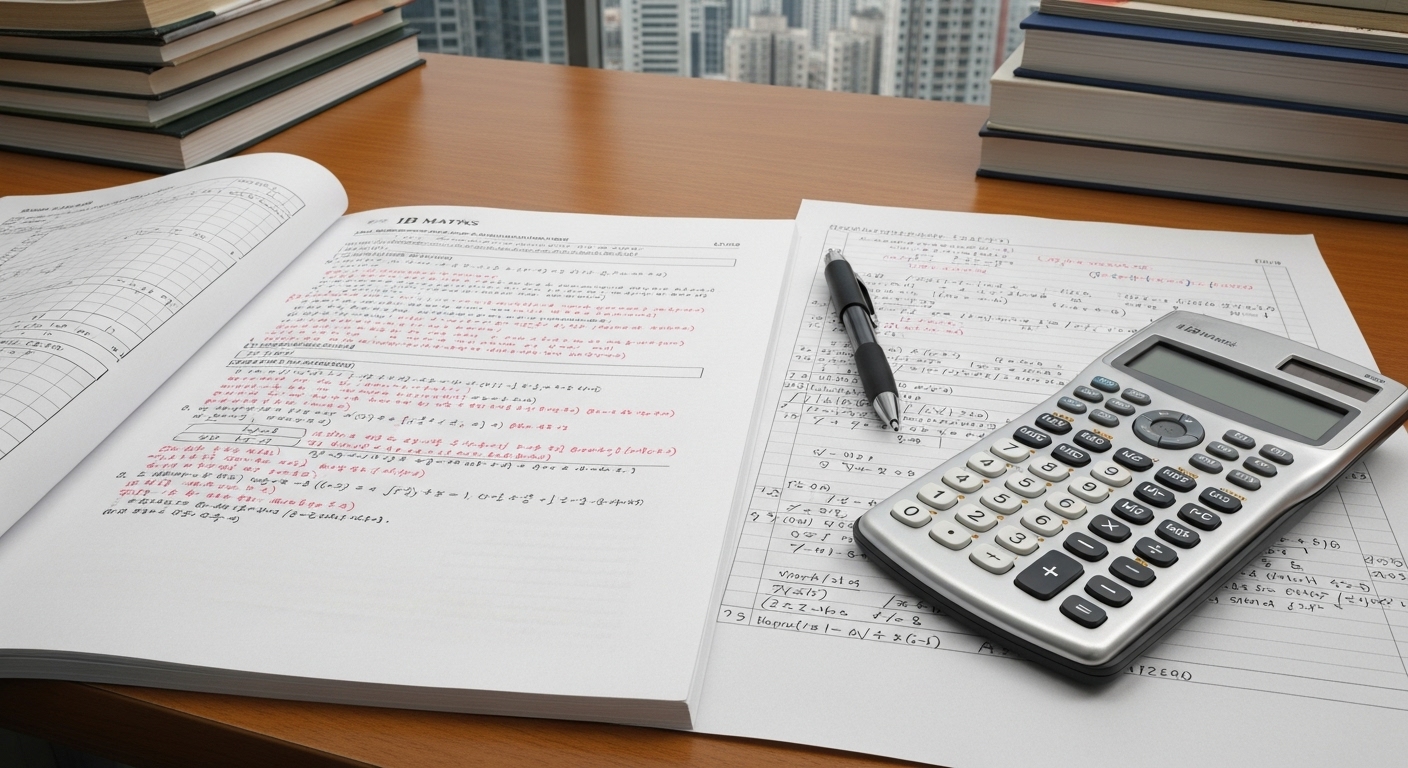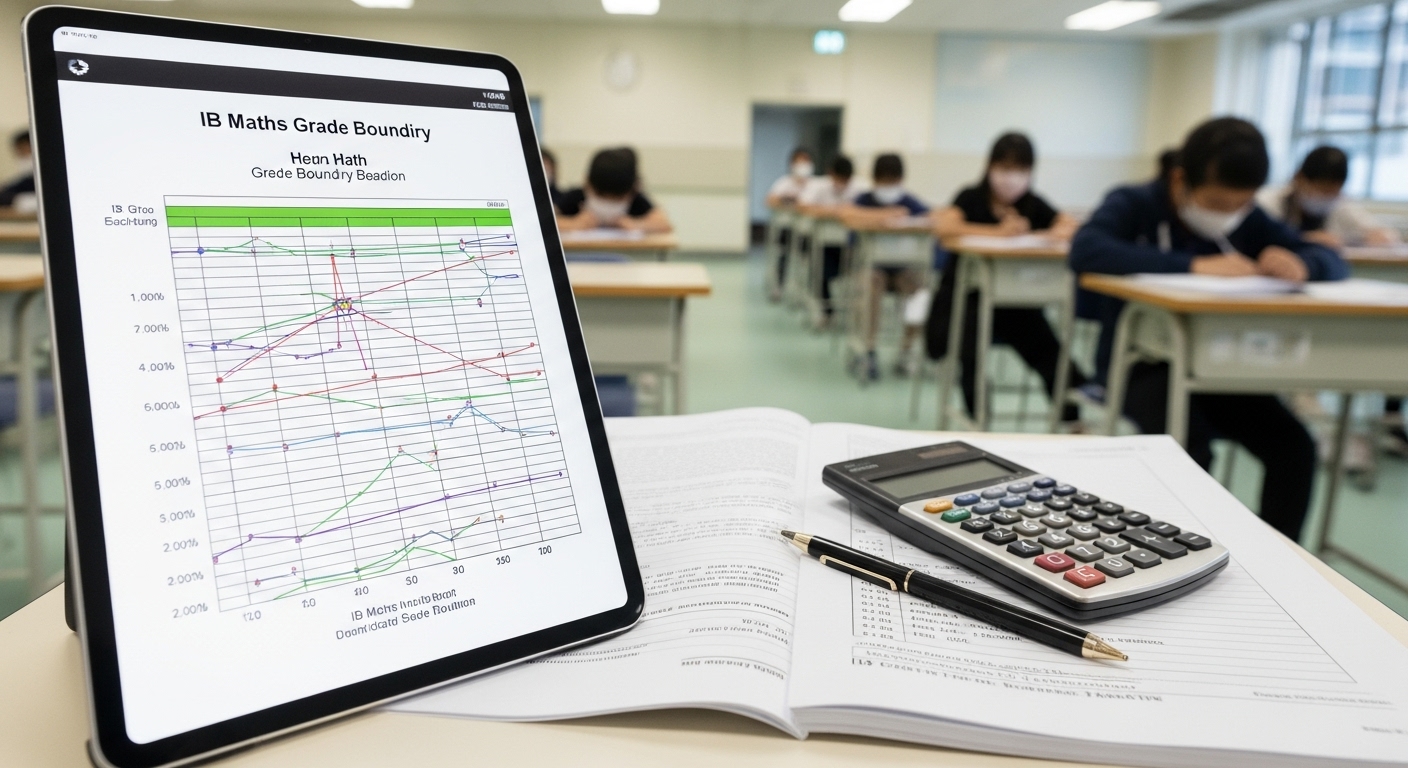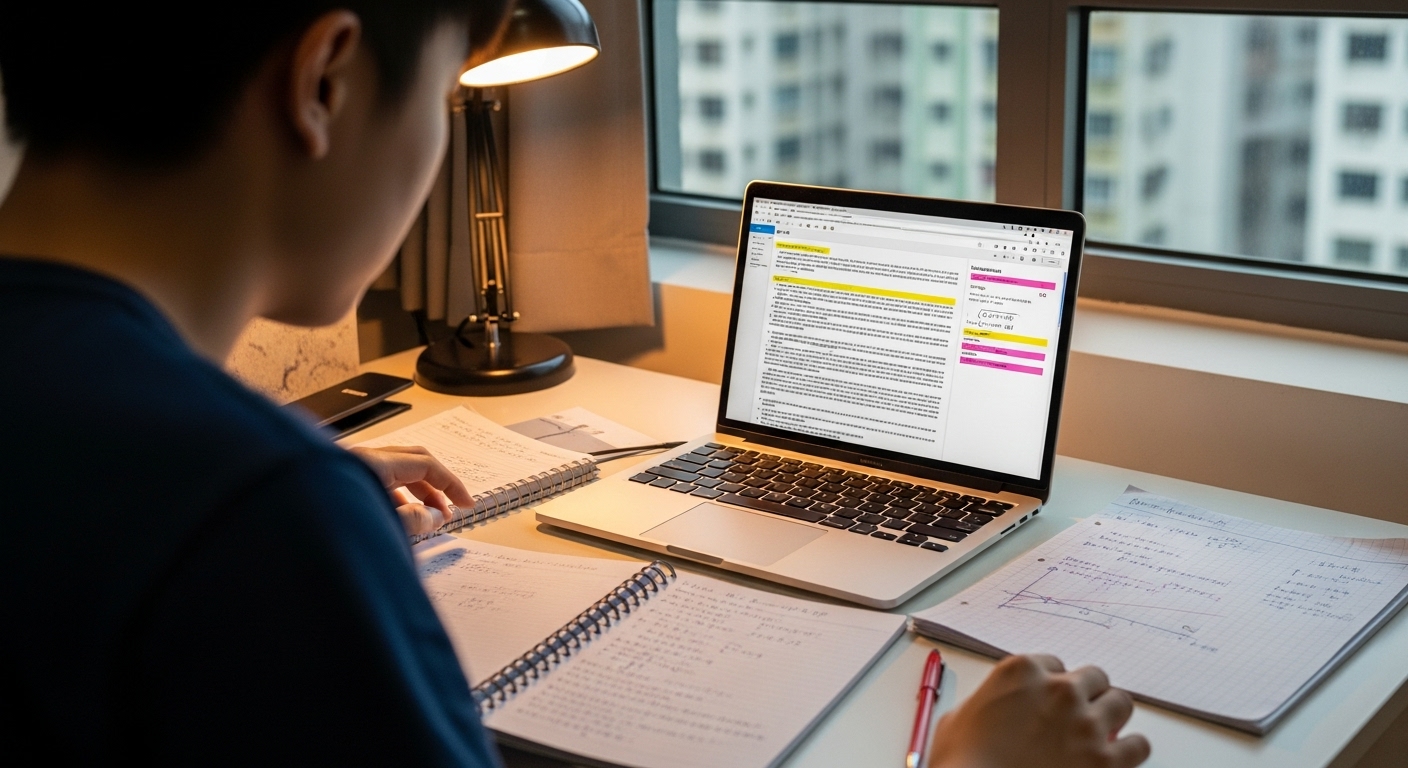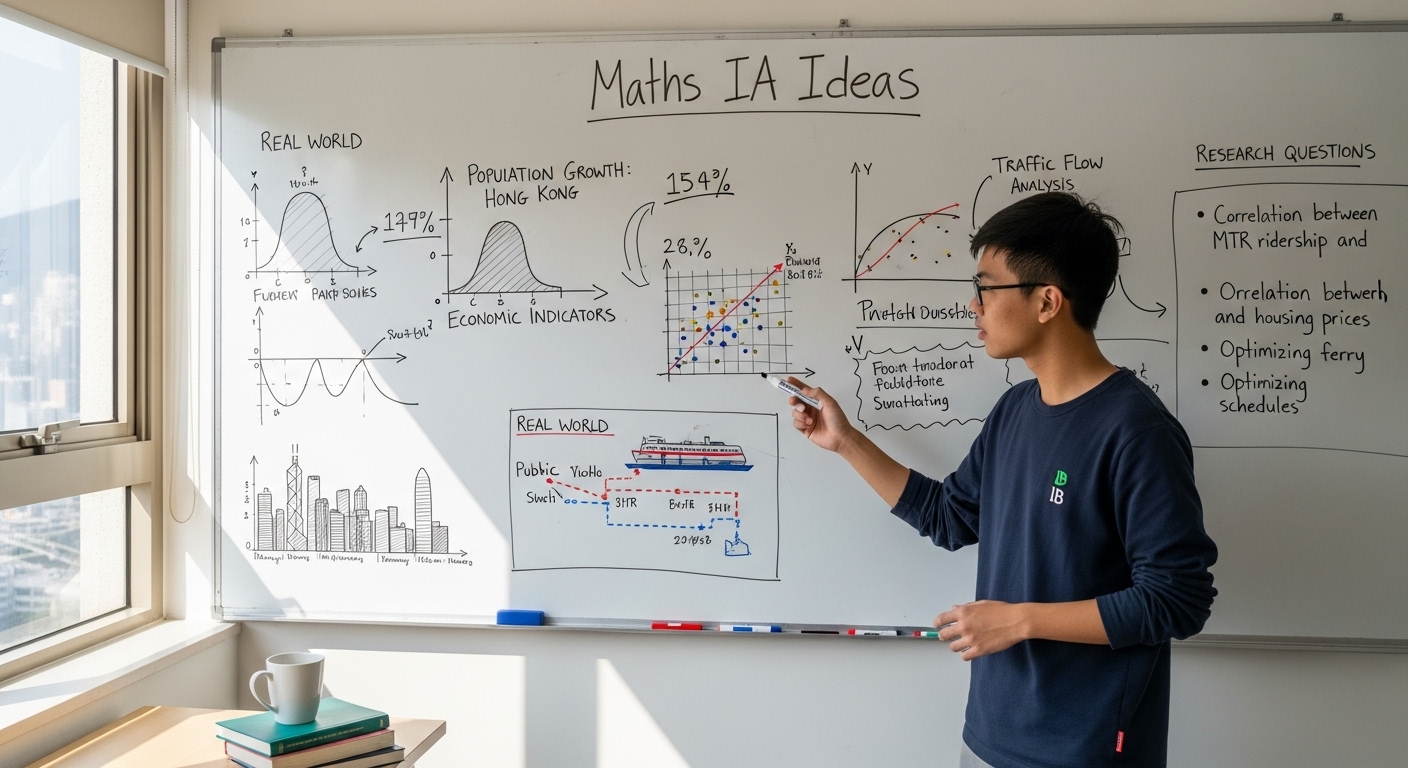How to Pass GCSE Maths: Tips for Acing the Exam Without the Stress
How to pass GCSE Maths is the most frequently asked question. There’s a common misconception that passing GCSE Maths is only for the “naturally gifted.” Maybe you’ve heard people say things like, “I’m just not a maths person,” or “You have to be a maths genius to get through this!” But here’s the reality: passing GCSE Maths isn’t about being a genius. It’s about strategy, practice, and knowing the right steps to take. With the right plan, you can absolutely pass GCSE Maths and even feel confident doing it.
In this guide, I’ll walk you through everything you need to know to make the grade. We’ll cover essential strategies to stay organized, key topics to focus on, and study habits that make a real difference on exam day.
1. Understanding What to Expect in GCSE Maths
To pass GCSE Maths confidently, the first step is understanding what you’ll actually face on the exam. Knowing the types of questions, the core topics, and the way they’re structured can be a big advantage. The GCSE Maths exam covers a range of subjects like algebra, trigonometry, geometry, and number systems. It’s a mix of everything, which can feel overwhelming, but breaking it down makes it a lot easier.
Know the Key Topics to Pass GCSE Maths
The main topics you’ll encounter include:
- Algebra: This covers everything from simplifying expressions to solving equations. Knowing the basics here can really help boost your score.
- Geometry and Measures: This includes areas, volumes, angles, and transformations. If you can get a good handle on geometry, you’re setting yourself up for success.
- Trigonometry: Commonly thought of as one of the more complex topics, trigonometry shows up on the exam often, so it’s worth spending some time here.
- Number Systems and Calculations: Understanding fractions, percentages, ratios, and basic calculations are essential skills that will appear throughout the test.
Each of these topics is tested through both non-calculator and calculator sections, so be ready for some mental maths, too. Making a list of these “must-know” topics and tackling them one by one is a smart first step in your GCSE Maths revision plan.
Practice Makes Perfect in GCSE Maths

Many students find that working through GCSE Maths practice papers helps them prepare for the real exam. Practice papers give you a sense of the kinds of questions you’ll face and highlight areas you may need to review. Aim to complete several papers under timed conditions. Doing this regularly builds not only your knowledge but also your confidence.
Try tackling practice questions as you learn each topic. This way, you’re solidifying your understanding step by step rather than leaving it all to the end. Websites with GCSE Maths past papers and answer keys can be great resources for this.
2. Step-by-Step Strategies on how to Pass GCSE Maths
When it comes to studying, a few practical strategies can go a long way. Here’s a straightforward breakdown of what to focus on:
2.1 Create a GCSE Maths Revision Plan
Start by setting up a study schedule that’s realistic. Maybe you’re planning to study a bit each day, or maybe weekends work best for you. The key is consistency. Allocate time each week for each topic—this way, you’re regularly reinforcing your knowledge rather than cramming.
- Break down the syllabus: Make a list of each topic and work through it in order of difficulty. Tackle the ones you find tough first, so you can spend more time mastering them.
- Include revision breaks: Studying in short, focused bursts (say, 25-30 minutes) with breaks in between can keep you from feeling burned out. This method is known as the Pomodoro Technique and works wonders for keeping your focus sharp.
2.2 Master Key GCSE Maths Topics
The topics that make up the core of GCSE Maths – algebra, trigonometry, geometry, and number systems – are the ones to prioritize. Each section has certain “need-to-know” concepts, so focus on these first. If algebra is tricky for you, spend extra time there. For others, geometry might be the hard one. Spend a little extra time on the concepts that trip you up the most, and make sure you understand how to apply them.
Quick Tip: Create flashcards or quick reference sheets with key formulas and equations. Having these at hand makes it easy to review concepts anytime.
2.3 Practice Past Papers and Questions
This might be the single best tip for anyone wondering how to pass GCSE Maths. By practicing past papers, you’ll see exactly how topics are structured in the exam and identify patterns in question types.
Practice papers let you:
- Identify your weaknesses: If there’s a particular type of question that keeps stumping you, it’s a sign you need to spend more time there.
- Develop exam-day confidence: Taking practice tests under timed conditions helps you get used to the pressure you’ll feel on exam day.
And remember, it’s not about getting every question right immediately. Each mistake you make in practice is one less mistake you’ll make on the real thing.
2.4 Learn Time Management for Exam Success
Time management is crucial for passing GCSE Maths. You don’t want to spend all your time on a few questions and then have to rush through the rest. Here’s how to practice managing your time effectively:
- Set a time limit per question: Divide the total exam time by the number of questions to get an average time to spend on each. Stick to this timing during practice tests.
- Prioritize easier questions first: Start with the questions you feel confident about. This way, you secure points early on, and it boosts your confidence.
- Practice skipping tough questions: If a question stumps you, don’t stress. Move on and come back to it later if you have time.
2.5 Overcoming GCSE Maths Challenges with Confidence
Everyone hits roadblocks. Whether it’s remembering formulas or managing nerves, these are common challenges in GCSE Maths. The key is to be patient with yourself and stay consistent with your revision. The more familiar you are with the material, the more confident you’ll feel.
If you’re nervous about a particular topic, try simplifying it by breaking it down into smaller parts. Sometimes, reading through a question carefully a couple of times can reveal patterns that help you solve it without even realizing. Remember, even the most difficult problems can often be simplified with a bit of patience.
3. Top Revision Techniques for GCSE Maths
You might think that revising for GCSE Maths means endless hours of rote memorization. But that approach just doesn’t work for most people! Cramming might help you remember a formula short-term, but it doesn’t lead to understanding. Effective GCSE Maths revision techniques are all about variety, strategy, and efficiency—here are some of the best approaches to make sure you’re learning (and not just memorizing) the essentials.
3.1 Active Recall: The Key to Retention
One of the most effective ways to retain information is through active recall. This technique involves testing yourself on topics without looking at your notes. Start with a question, try to answer from memory, and only then check if you got it right. Active recall is like building muscle memory for your brain—it helps solidify your understanding so that you remember it even under exam pressure.
To put active recall into action:
- Use flashcards: Write questions on one side and answers on the other. Go through these regularly to keep challenging yourself.
- Create a practice quiz: Jot down some of your own questions and test yourself. This works especially well with formulas and equations.
- Teach the material: Explaining a topic out loud (even to yourself) helps clarify it. If you can teach a concept confidently, it’s a good sign you’ve mastered it.
3.2 Spaced Repetition: Reinforce Knowledge Over Time
Another effective method is spaced repetition, which means reviewing material multiple times over increasing intervals. This approach works because it spaces out your learning, helping commit the information to long-term memory rather than short-term.
Here’s how to use spaced repetition:
- Set up a schedule: Review each topic the day you learn it, then again a few days later, then weekly. Over time, these intervals will help lock in the knowledge.
- Try spaced repetition apps: Platforms like Anki and Quizlet can automatically set review intervals, saving you time and ensuring you revisit material when you need it most.
3.3 Mind Mapping for Topic Connections
GCSE Maths covers a lot of interconnected topics, and mind mapping is a great way to see the bigger picture. Draw connections between related topics, like how algebra links to trigonometry or how geometry concepts are used in real-world measurements. When you can see how topics fit together, they’re easier to remember and apply.
How to create a mind map and pass GCSE Maths:
- Write the main topic in the center: For example, start with “Algebra.”
- Branch out to subtopics: Draw lines connecting to related concepts, like solving equations or factoring.
- Use colors or symbols: Adding color or icons for different topics makes mind maps more engaging and easier to review.
3.4 Solving Practice Problems: The Ultimate Revision Strategy
Nothing helps you prepare for GCSE Maths exam questions quite like doing real problems. Set aside time to solve questions that test different skill levels, from basic to challenging. Practice papers are especially helpful since they show you exactly what to expect on exam day.
How to get the most out of practice problems:
- Use exam-style questions: This helps you get familiar with the format, time limits, and question phrasing.
- Review mistakes carefully: Every incorrect answer is an opportunity to learn. Figure out why you missed it, and make a note of any concepts you need to revisit.
- Mix up topics: Switch between topics, like geometry and algebra, during your study sessions. This approach simulates the exam and helps you become comfortable moving between different types of questions.
3.5 Set Mini Goals for Motivation
Studying for a big exam can feel overwhelming, but setting mini goals can keep you motivated. Break down your revision into smaller, manageable tasks, like reviewing one topic or completing a practice test.
Example mini goals:
- Complete one algebra practice paper by the end of the week.
- Memorize key trigonometry formulas by Wednesday.
- Score 80% or higher on your next practice quiz.
4. Best Study Resources for GCSE Maths Success
One of the biggest myths about studying for GCSE Maths is that you need stacks of expensive textbooks to do well. In reality, there are tons of fantastic (and often free) resources out there that make studying easier, interactive, and more effective.
4.1 Using YouTube for Visual Learning
If you’re a visual learner, YouTube is a goldmine for GCSE Maths tutorials. Channels like Corbettmaths and HegartyMaths cover every topic in the GCSE syllabus with easy-to-follow explanations. Watching step-by-step solutions can give you a better understanding than just reading from a book.
Some top channels for GCSE Maths include:
- Corbettmaths: Known for straightforward explanations and practice problems.
- HegartyMaths: Covers the GCSE syllabus comprehensively with a focus on exam-style questions.
- Maths Genie: Offers topic-specific tutorials along with practice questions.
4.2 Finding GCSE Maths Practice Papers
There’s no better way to prepare for the GCSE Maths exam than by working through practice papers. These are real past papers or sample papers that mirror the types of questions you’ll face. Websites like MathsMadeEasy and the official AQA or Edexcel websites offer free past papers that you can download and practice.
Pro Tip: Try completing practice papers under timed conditions to get used to exam pressure. The more practice papers you do, the more familiar you’ll be with the test format, question types, and timing.
4.3 Apps for On-the-Go Revision
If you prefer studying on your phone, there are plenty of GCSE Maths revision apps that let you revise anywhere, anytime. Apps are great for sneaking in a quick review session on the go.
Here are a few top apps:
- Gojimo: This app offers quizzes and practice questions tailored to GCSE Maths.
- Quizlet: You can create or find flashcards for each topic and test yourself whenever you have a few spare minutes.
- Seneca Learning: An interactive app with quizzes and explanations that’s designed to reinforce learning through spaced repetition.
4.4 Study Guides for Structured Revision
Sometimes, having a physical study guide can be incredibly helpful. Look for GCSE Maths revision books that break down each topic and include example questions. Books like “CGP GCSE Maths Revision Guide” are widely used by students because they cover the syllabus in an easy-to-read, structured format.
Popular GCSE Maths Study Guides:
- CGP GCSE Maths Revision Guide: Known for its clear explanations and practice questions.
- Collins GCSE Maths Revision and Practice: Includes topic reviews, examples, and self-assessment questions.
- Edexcel GCSE Maths Revision Workbook: Perfect if you’re taking the Edexcel exam, with practice questions tailored to their exam format.
By using the best revision techniques and study resources, you can make passing GCSE Maths a realistic and achievable goal. In the next sections, we’ll go over exam-day tips and strategies to maximize your score under pressure!
5. Time Management Tips for GCSE Maths Success
A lot of people think that managing time only matters on exam day, but that’s far from the truth. Effective time management is something you should build into your study routine long before the exam. This will help you avoid the last-minute scramble and actually reduce stress during your revision sessions and on exam day.
5.1 Setting Up a Realistic Study Schedule
Creating a study timetable can make all the difference. With a solid schedule, you’re less likely to waste time and more likely to cover all necessary topics. Aim to spread your revision over several weeks, focusing on a different topic or unit each day. Break down complex topics, like algebra or geometry, into smaller, manageable sections to keep the pace steady and enjoyable.
Pro tip: Start with your weakest topics. Not only will you give yourself more time to master them, but you’ll also feel more confident as you approach exam day with these challenging areas under your belt.
5.2 Balancing Practice with Theory
Balance is key when it comes to revision. Many students make the mistake of either spending all their time doing practice questions or only revising theory. To do well in GCSE Maths, you need a good mix of both. Students who balance practice with theory know how to pass GCSE Maths. Spend time on understanding concepts and theories, then follow up with practice problems. Platforms like Mathzem make this easy by offering both video tutorials to explain the theory and practice questions for reinforcement.
5.3 Using the Pomodoro Technique for Focused Study
Ever heard of the Pomodoro Technique? It’s a method that breaks study time into 25-minute focused blocks with short breaks in between. This is an excellent way to boost productivity without feeling overwhelmed. After each 25-minute study session, take a 5-minute break. After four rounds, take a longer break. This method can help you stay focused and make the most of your study time, especially when working on tough topics like trigonometry or quadratic equations.
5.4 Prioritize What’s Important
Remember, you don’t need to memorize every single detail. Focus on understanding the most important GCSE Maths concepts, especially those that appear frequently on past papers. Topics like algebra, probability, and geometry tend to carry significant weight. When you’re pressed for time, prioritize these key topics and spend less time on less common material.
6. How to Pass GCSE Maths-Exam Day Strategies
There’s a lot of pressure on exam day, but with the right strategies, you can tackle your GCSE Maths exam calmly and confidently. The goal here is to make sure you don’t just know the material—you know how to apply it under exam conditions.
6.1 Arrive Prepared and Early
Get to the exam hall early so you have time to settle in and calm any last-minute nerves. This also gives you a moment to review your approach and recall any tricky formulas. Don’t bring too much material into the exam hall, though—just the essentials like your pens, pencils, and calculator. Make sure your calculator is fully functional if it’s allowed for certain sections of the exam.
6.2 Allocate Time Wisely
The exam will have a mix of easy, moderate, and difficult questions. Start with the ones you’re most comfortable with, so you can gain confidence early on. This also helps you save time for tougher questions later. As a rule of thumb, allocate less time to straightforward questions and more time to questions that require deeper thinking. Leave some buffer time at the end to double-check your answers.
6.3 Show All Your Work
Even if you think you can skip steps, it’s crucial to show all your work in the GCSE Maths exam. Many marks are awarded for the process, not just the final answer. Write out each step clearly so that, even if you make a minor error, you can still earn partial marks. This approach also helps you review your work easily if you have time left at the end.
6.4 Don’t Panic if You Get Stuck
It’s easy to feel flustered if you hit a tough question, but remember: don’t panic! Take a deep breath, skip it if you need to, and move on. You can always return to it once you’ve completed the questions you’re more comfortable with. Often, coming back with a fresh mind helps unlock new ways of solving it.
By following these time management and exam day strategies, you’re setting yourself up to perform your best. These small actions, combined with solid preparation, make all the difference in achieving a top GCSE Maths score.
7. Common Mistakes to Avoid in GCSE Maths
Let’s be real—everyone makes mistakes, especially when it comes to exams. But you don’t want to let silly errors hold you back from passing GCSE Maths! Many students think that mistakes are just a part of the game, but they can often be avoided with the right strategies.
7.1 Ignoring the Marking Scheme
One of the most significant missteps is overlooking the marking scheme. Students often fixate on getting the right answer, but the truth is, the way you arrive at that answer matters just as much. The marking scheme is designed to guide you on what examiners are looking for. By adhering to it, you maximize your chances of scoring full marks. So, take a moment to review the scheme; it can help you understand how to approach different types of questions effectively.
7.2 Skipping Practice Papers
Let’s face it: some students underestimate the power of practice papers. If you think you can ace the exam without putting in the time to practice past papers, think again! These papers are like gold nuggets—they give you insight into the exam format, types of questions, and the overall timing you’ll need to manage effectively. By simulating exam conditions with past papers, you’ll become familiar with how to tackle different questions, boosting your confidence on the big day.
7.3 Underestimating Word Problems
Another common error is dodging word problems because they seem daunting. But here’s the deal: word problems often account for a significant portion of your exam marks. Instead of shying away, embrace them! Break them down into smaller, manageable pieces. Identify the key information and translate it into mathematical equations. This approach not only makes solving them easier but also helps you understand the real-world application of what you’re learning.
7.4 Lack of Review Time
How many times have you rushed through an exam only to find mistakes in your answers afterward? Many students make the error of not leaving enough time for review. Always allocate a few minutes at the end of your exam to double-check your answers. This little habit can be a game-changer, helping you catch careless errors or miscalculations that could otherwise lower your score.
8. How to Use the Mathzem Platform to Pass GCSE Maths
Now that we’ve tackled common mistakes, let’s dive into how the Mathzem platform can be your best ally in acing your GCSE Maths exam. Many students think they can handle it all on their own, but leveraging the right tools can make a world of difference.
8.1 Interactive Learning Experience
At Mathzem, the learning experience is anything but boring. Gone are the days of dull textbooks and endless lectures! Our platform offers interactive quizzes and collaborative problem-solving activities. This engaging approach not only makes studying more enjoyable but also helps you retain information more effectively. Imagine working on a problem with your peers and getting instant feedback—that’s the kind of learning that sticks!
8.2 Support and Feedback From Experts
Let’s face it, every student has their own unique learning style and pace and some have their own answers on how to pass GCSE Maths. That’s why Mathzem provides personalized feedback from our team of expert instructors. When you submit your assignments, they don’t just glance at them; they carefully analyze your work to provide tailored advice. This means you get targeted support to improve your weaknesses, allowing you to create a solid study plan that works for you.
8.3 Engaging Video Content
Struggling to understand complex math concepts? Mathzem has you covered with our engaging video tutorials. Our videos break down difficult topics into easy-to-follow steps, making sure you grasp the material without feeling overwhelmed. We use clear language and visual aids to enhance your understanding, ensuring that whether it’s algebra, geometry, or statistics, you’ll have the tools you need to succeed.
8.4 Comprehensive Study Guides
But we don’t stop there! Mathzem offers extensive study guides and revision notes that cover everything from exam techniques to key formulas. These resources are specifically designed to ensure you’re well-prepared for your exams. By having a well-structured guide at your fingertips, you can streamline your revision process and focus on what really matters, boosting your confidence as you head into the exam.
8.5 GCSE Maths Revision Tips
Besides using Mathzem’s resources, remember these essential revision tips:
- Revise Past Papers: They give you a feel for the exam format and the kinds of questions that may appear.
- Practice Time Management: Use a timer to practice answering questions within a set time. This helps you learn to work efficiently.
- Practice Writing: In GCSE Maths, showing your work is vital. Get into the habit of writing out your solutions clearly.
- Explore Multiple Resources: Don’t just stick to one source; use online tutorials, practice questions, and past papers for diverse learning.
- Balance Calculator and Non-Calculator Questions: Practice both types of questions to be prepared for anything the exam throws at you.
9. Final Thoughts on How to Pass GCSE Maths and Encouragement.
Feeling overwhelmed about passing GCSE Maths? You’re definitely not alone! Many students have questions about how to pass GCSE Maths and face similar challenges, but the good news is that with the right preparation and mindset, you can absolutely ace your exam.
Remember, the key to success lies in your preparation. Utilize the Mathzem platform to its fullest—engage with interactive content, seek feedback from our expert instructors, and make sure to practice past papers. These are not just tips; they are your roadmap to success.
And let’s not forget—believe in yourself! With dedication, hard work, and smart study habits, you’re well on your way to achieving a fantastic grade in your GCSE Maths exam. So, roll up your sleeves, dive into your revision, and get ready to shine—you’ve got this!

